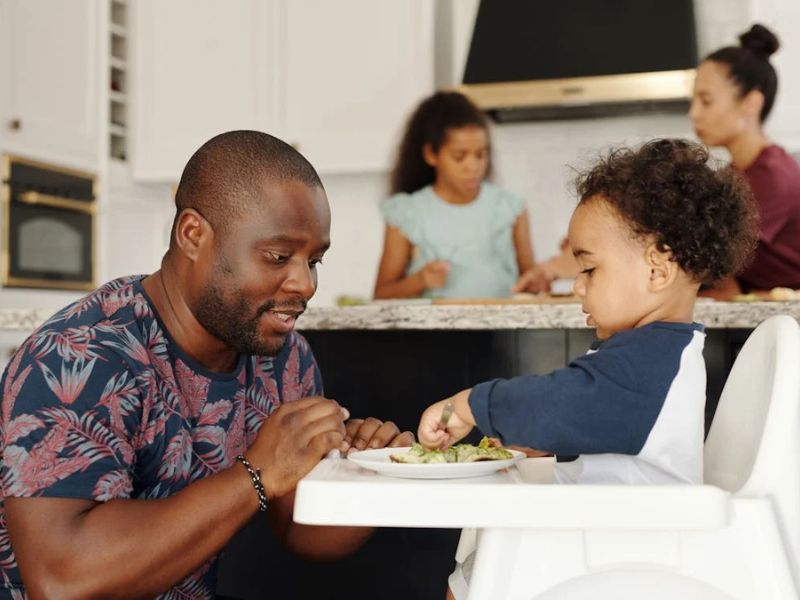Family dinner is an opportunity to relax after a long day. If your children are young, getting them to eat together in harmony at the dinner table or eat what you cooked can be challenging. Your kids should develop healthy eating habits. Even though you intend well, you may say things about food, perhaps refraining from when you were a child, that will hurt your child’s relationship with food.
Crystal Williams, a therapist, said, “It’s not easy to always be mindful of how strong opinions, self-criticism, and comments about food and eating are internalized. Williams and other experts discussed which common phrases parents should avoid when eating.

Image Credit: Pexels/Mikhail Nilov
Eat Your Broccoli, Then Have Dessert
Children will eat healthier foods if they engage in bargains like this, which therapist Alissa Rumsey calls “food negotiations.” Rumsey said, “this reinforces disconnected eating.” You’re getting your kid to consume broccoli, but not because they’re hungry. It’s not the eating you should encourage, regardless of whether the food is vegetables or cake.
Look Who Cleaned Their Plate First!
As children, many of us were raised to be clean plate club members. Children have plenty to eat, so insisting they keep going promotes the same kind of disconnected eating as forcing them to finish their broccoli before dessert. It was typical for motivational speeches to mention hungry children on another continent.
You Shouldn’t Waste Food!
It’s tempting to yell this at your child when he makes his way through a mountain of cereal, but it encourages kids to finish their food to avoid throwing it out.
Children learning to serve themselves may need help determining what a reasonable portion size looks like. If they need help, say, “Why don’t you start with this much? Then you can always add more.”

Image Credit: Pexels/Vanessa Loring
French Fries Make Us Fat/Unhealthy
Jillian Lampert, an eating disorders specialist, said, “We don’t want kids to think of food as bad or good.”
Williams says that if kids are told a particular food is “bad,” they may feel compelled to “eat it in secret, hide the evidence, binge it, and feel ashamed.” Children will quickly discover that what is being eaten is inextricably linked to who is eating it, even if you think you’re limiting your comments to the food. A child may believe that fries are wrong if they like or eat them.